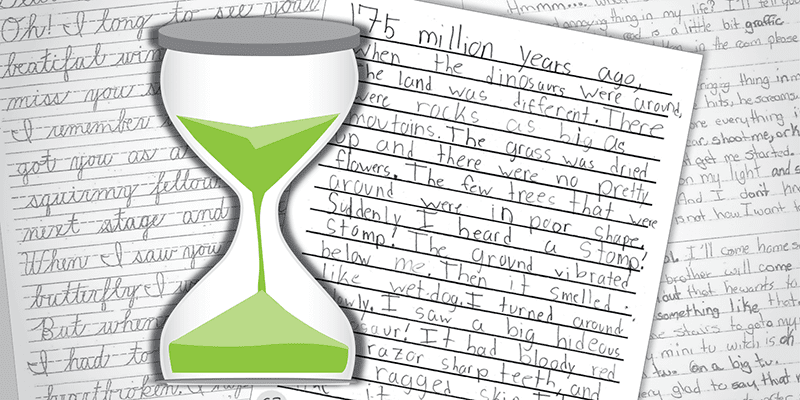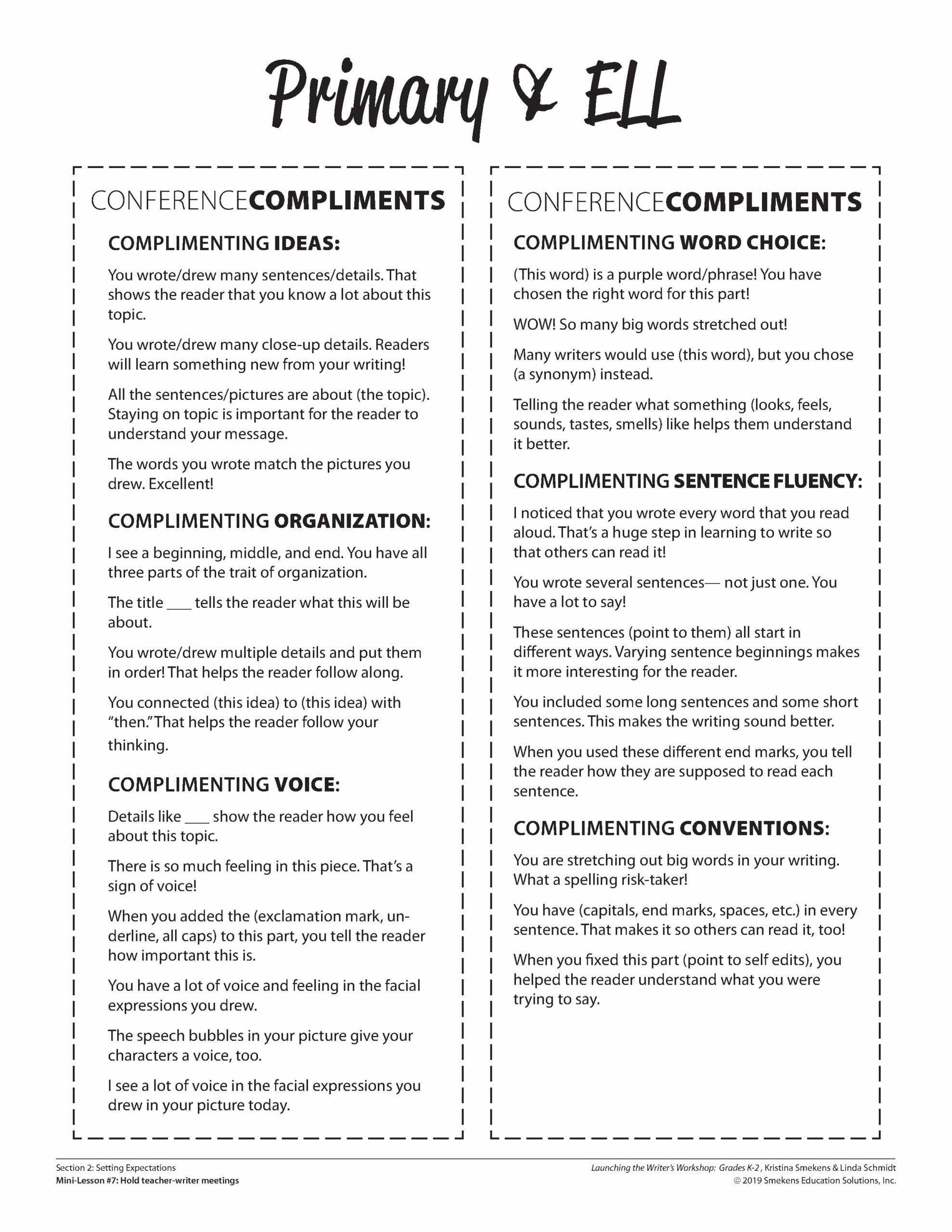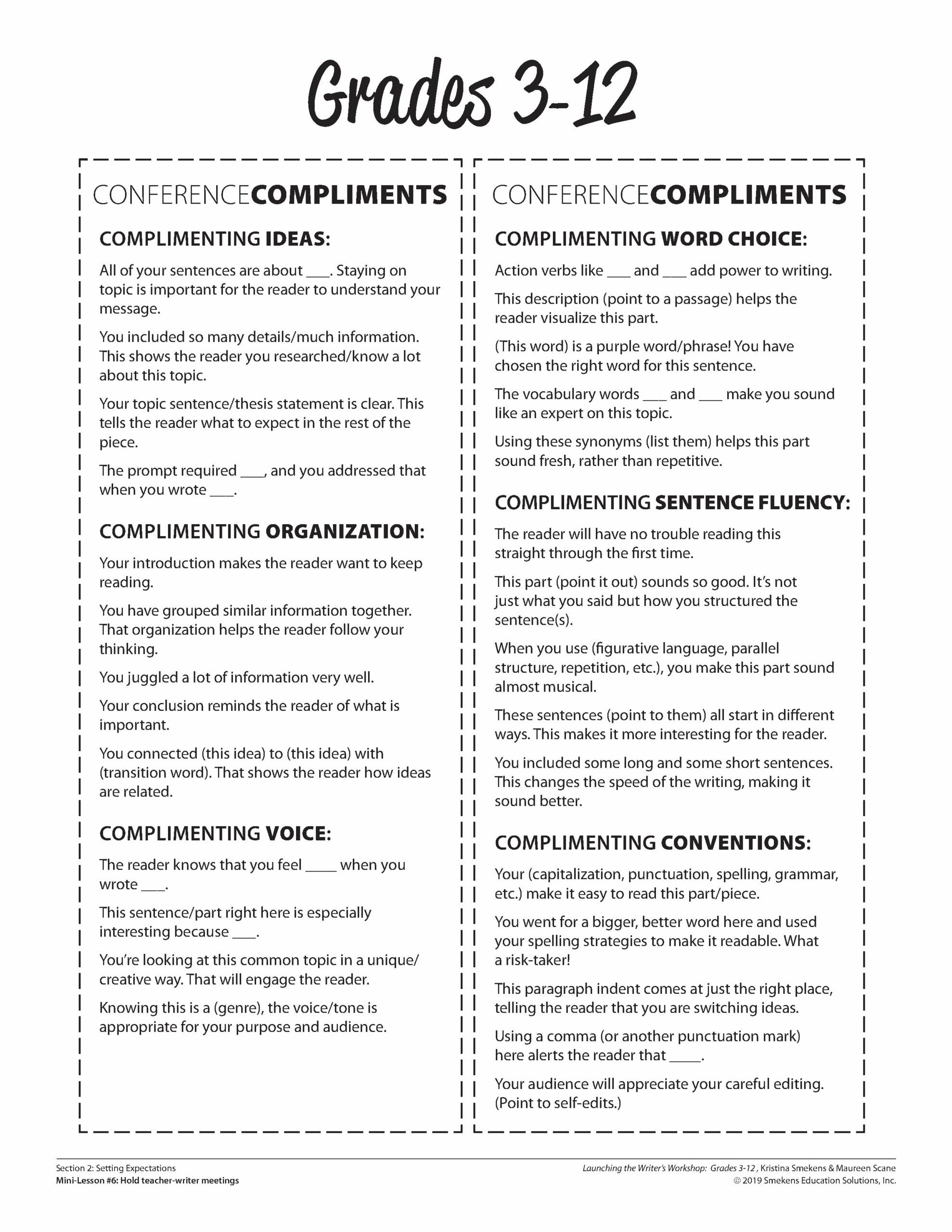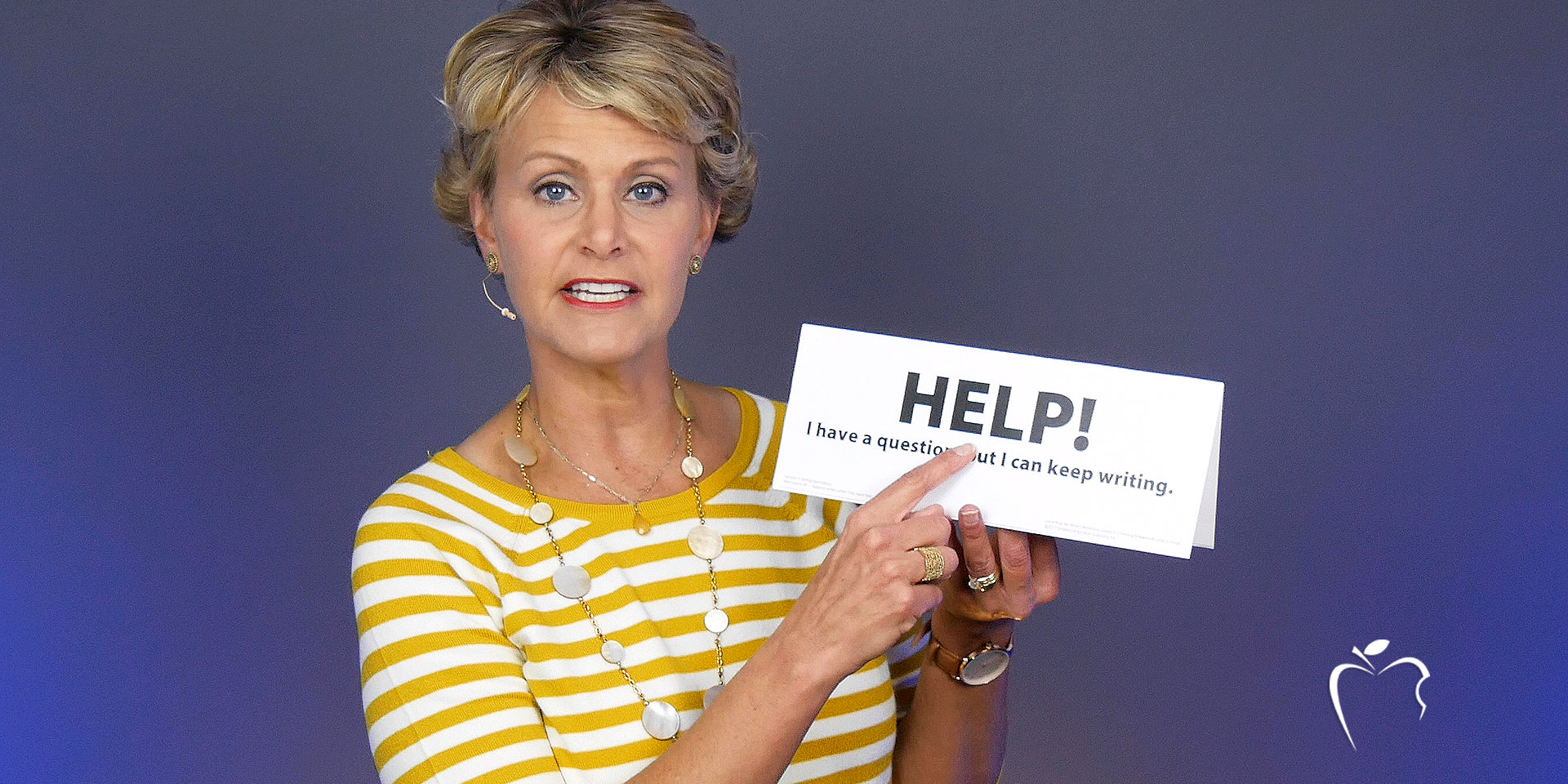Learning Center
writing
Manage writer conferences

Is writer conferencing bogging you down? Do you struggle to meet with all your writers regularly? Does the rest of the class get off task during writer’s workshop while you are meeting with one writer? Here are some management tips that might increase the power of conferencing.
What is a writing conference?
A conference is nothing more than a conversation. It doesn’t have to be a formal 12-minute deal at a “conferencing table” in the corner of the room. In fact, Kristina Smekens suggests doing less of those. Instead, do more conferences while students are at their desks. By going to the students, you can help them when they are in the middle of the writing process instead of after they are “done” with a draft.
Also, if you go to kids in groups (a “group” being a cluster of desks in your room arrangement), then you only have to have as many conversations as you have groups. This is more manageable than 27 individual conversations.
What do you say to a writer?
When you approach a group, invite them to read a specific portion of their writing. “We’ve been talking about hooks. Read me your first sentence.” Another invitation might sound like this, “We’ve been focusing on action verbs. Find your strongest verb.” Or, sometimes you can be more general, for example, “What is your favorite part so far? Read me that.”
After group members share, be ready to compliment and then comment. One of the most vital pieces in the conversation is a SPECIFIC compliment of a trait the writer did well and a SPECIFIC comment on a trait to work on. Make sure that both the compliment and comment are based on one of the 6 Traits of Writing. For example, “Jeremy, your word choice in this piece is fantastic! I love the words ‘bloated, alarmed and screeched.’ AWESOME verbs! Now, I am wondering about your sentence fluency. Most of your sentences are the same length. Consider putting your draft through the Slinky Test.” And that’s it. Don’t go over the WHOLE writing. Discuss only 1-2 skills in each conversation. Download trait-specifc compliments for grades K-2 and grades 3-12.
How do you keep the conversations short?
Again, students don’t necessarily read the whole piece. Invite them to share a portion, or they may ask you to respond to a section. With that said, some students can still consume a lot of your time. Consider utilizing a board game sand timer to better manage your time. You can get them in various time intervals. Find one with multiple minutes of sand, and let the group know that when the sand runs out, you will need to wrap it up and head to another group. By converting to the group-conferencing approach, you stay in control of your time, and you can easily hit all or most students every day.
What about the kids who have questions when you’re busy?
You have to be proactive; you know students will have questions when you are conferencing with someone else, so what do you want them to do? Kristina Smekens has developed a lesson that is vital to writing workshop success in a positive classroom environment—“What to do when the teacher’s busy.” You are welcome to download the lesson.
A Final Note
When managing conferencing in the classroom, remember that your writers would rather have a couple minutes of your expertise every day, than 10 minutes every other week. Identify management techniques that will help you achieve this.






